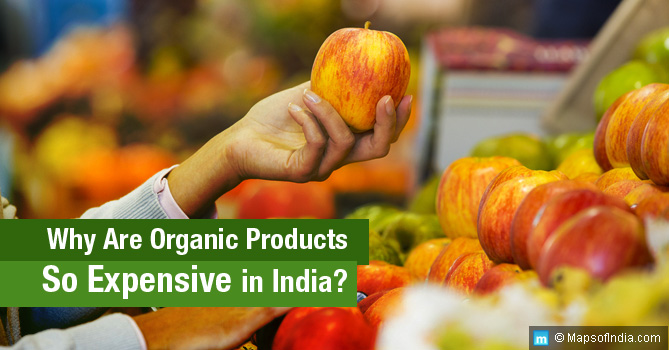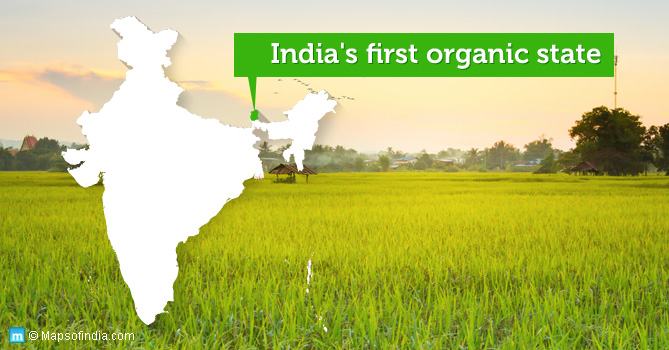With the onset of the Green Revolution back in the 1960s, India attempted to multiply its agricultural produce to sustain a fast growing population. Use of chemical fertilizers, and insecticides and pesticides, apart from mechanized farming implements took India to its heady days of agricultural plenty. This also meant, however, that it took Indian farmers away from the traditional methods of farming which were essentially organic in nature.
Increasing instances of diseases and health hazards due to the use of chemicals have led Indians, at least those living in Urban areas, to make healthier food choices by switching to organic produce. Organic foods are the rage in cities such as Delhi, Bengaluru, Hyderabad and Pune. These foods, however, cost a lot more than regular food items, making it unaffordable for the lower- and middle-income groups. On an average, organic pulses cost almost 2.5 times the regular pulses. Despite their health and environment friendliness, organic foods still pinch the pockets of the average Indian.
Let us take a look at the reason for the high costs of organically farmed foods in India.
- High Accreditation Costs – Organic farmers are required to pay a high fee for registration, accreditation and certification. Agencies, on an average, charge between Rs 10,000 and Rs 25,000 for the accreditation and certification for each product. Apart from this, any chemical analysis is charged on actuals. If a farmer cultivates two different crops on his organic farm, then this fee is doubled. The average Indian farmer finds this almost unaffordable and those who manage the costs ultimately end up pricing the produce on the higher side.
- Export Orientation – Most of the organic produce from India is intended for sale in foreign markets. About 60 percent of the organic products from the country were exported to the European Union last year, a further 20 percent exported to the US. India is targeting almost US$1 billion worth organic food exports in the years to come. The global markets and the prices that such products command abroad are a great influence on the domestic pricing as well.
- High Farming Costs – In a country like India where more is better, agriculture is one of the largest employers. More produce, longer storage times, and fewer instances of pest or insect infestation translate into high pricing. Organic farming is labour intensive. The biofertilizers used are also very expensive. Now add to this the scanty distribution channels and high costs incurred by storage facilities. Organic products require careful storing as the spoilage is high. Apart from this, the risk of undertaking organic farming is high, too. Crop failure due to pests and insects is also quite common. Such costs and risks translate into a premium on the price.
- Low Supply, High Demand – The yield from organic farms is typically low. Organic farming techniques yield anywhere between 30-to-50 percent less output. To make the same amount of profit, the produce is priced high. The supply, too, is low and the demand very high, naturally pushing the price up. In case of organic crops the risk of contamination by chemical fertilizers, pesticides, etc. from water, neighbouring farms is high. This leads to a smaller yield, resulting in expensive products.
Organic farming may be tedious, expensive and unviable in a larger scale. But it is an infinitely healthier choice. Buying organic products need not be expensive if you find the time, space and effort to put into your own kitchen or terrace garden.





